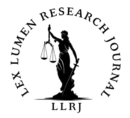Written By Sundus Sultan,
Law College Dehradun
Novemeber 2024
The term “Bulldozer Justice” has gained prominence in recent times, symbolizing a controversial and forceful approach to law enforcement and administrative action. It represents situations where authorities use demolition drives or similar measures as punitive or corrective mechanisms, often bypassing due legal process. While some hail it as a swift means to uphold law and order, critics argue that it undermines fundamental rights and constitutional principles. This blog explores the concept of bulldozer justice, its legal implications, and the associated judicial scrutiny in India.
What is Bulldozer Justice?
Bulldozer Justice is not a legal term but a colloquial expression used to describe actions by authorities, particularly the use of bulldozers to demolish properties of individuals accused of crimes or alleged violations of laws. Often, these actions are justified as measures to remove illegal encroachments or unauthorized constructions. However, when undertaken without adherence to due process, such actions raise concerns about arbitrariness, selective targeting, and potential misuse of power.
Key Legal and Constitutional Issues
- Right to Property (Article 300A)
The Constitution of India guarantees the right to property as a legal right under Article 300A. It states that no person shall be deprived of their property except by authority of law. Arbitrary demolitions without proper notice and opportunity to be heard violate this right.
- Right to Equality (Article 14)
Selective targeting of individuals or groups for such actions, often based on religion, caste, or political affiliations, breaches the constitutional guarantee of equality before the law.
- Right to Life and Personal Liberty (Article 21)
Demolishing homes or properties without providing adequate notice, alternative arrangements, or an opportunity for appeal infringes on the fundamental right to life and dignity.
- Principles of Natural Justice
The basic tenets of natural justice include the right to a fair hearing (audi alteram partem) and the absence of bias. Demolition without notice or an opportunity to contest the action violates these principles.
Notable Case Laws
- Olga Tellis v. Bombay Municipal Corporation (1985 AIR 180)
The Supreme Court held that the right to livelihood is an integral part of the right to life under Article 21. In the context of slum demolition, the Court emphasized the need for adequate rehabilitation and humane treatment of affected individuals.
- Ajay Maken v. Union of India (2019 SCC Online SC 1867)
The Delhi High Court reiterated the importance of following due process before evicting individuals or demolishing properties. The court directed authorities to ensure rehabilitation before eviction.
- Indore Development Authority v. Shailendra (2018 SCC Online SC 1933)
The Supreme Court ruled that property rights cannot be violated arbitrarily, emphasizing the need for a fair process and reasonable compensation when authorities acquire or demolish properties.
- Municipal Corporation of Delhi v. Gurnam Kaur (1989 AIR 38)
The Supreme Court underscored the principle of legitimate expectation, highlighting that citizens have a right to expect fair and consistent treatment from public authorities.
- Kushum Lata v. Union of India (2006 SCC 4 217)
The Court highlighted that administrative actions must adhere to the rule of law and cannot operate in an arbitrary or discriminatory manner.
Judicial Criticism of Bulldozer Justice
In recent instances, courts have intervened to check the misuse of demolition drives:
- Jahangir Puri Demolition Case (2022)
The Supreme Court stayed a demolition drive in Delhi’s Jahangir Puri area, highlighting the lack of notice and questioning the selective targeting of properties. The court emphasized the need for due process and adherence to established legal frameworks.
- Khori Gaon Evictions Case (2021)
The Supreme Court directed the Haryana government to halt demolition activities in Faridabad’s Khori Gaon area without ensuring rehabilitation. The judgment highlighted the importance of balancing development with the rights of marginalized communities.
The Way Forward
- Strengthening Legal Oversight
Authorities must adhere to legal provisions, issue notices, and provide affected parties with opportunities to present their case.
- Transparent Policies
Clear and consistent policies on land use, encroachment removal, and urban planning can reduce instances of arbitrary action.
- Judicial Vigilance
Courts must continue to act as guardians of constitutional rights, ensuring that state actions comply with the principles of fairness, justice, and equality.
- Public Accountability
Citizens and civil society organizations should demand accountability from authorities, advocating for humane and lawful approaches to resolving disputes.
Conclusion
Bulldozer Justice, while often portrayed as a quick fix for deep-rooted issues, poses significant legal and ethical challenges. Its reliance on brute force rather than established procedures undermines the rule of law and constitutional values. A democratic society must balance efficiency with justice, ensuring that administrative actions respect individual rights and due process. As courts increasingly scrutinize such measures, it is imperative for governments and public authorities to adopt transparent, fair, and lawful approaches to governance.


